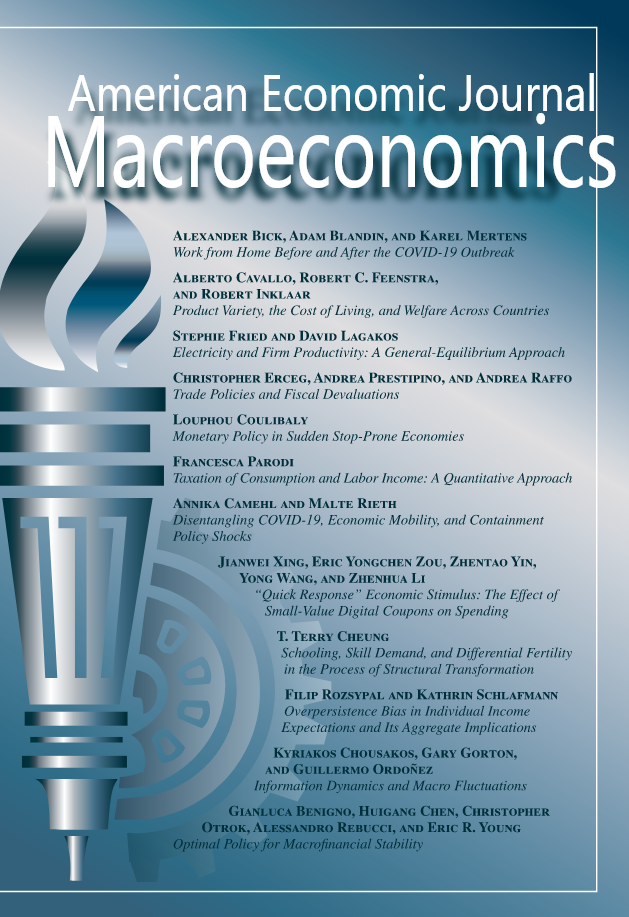多部门经济中的政府支出乘数
IF 5.7
1区 经济学
Q1 ECONOMICS
引用次数: 10
摘要
我们研究了生产网络经济中政府总支出冲击的影响,其中部门在价格刚性、要素强度、中间投入的使用和对最终需求的贡献方面存在差异。该模型表明,总增值乘数比平均单部门经济中获得的乘数高75%(和0.32美元)。这种放大主要是由投入产出联系以及(在较小程度上)价格刚性的部门异质性驱动的。政府总支出冲击也会导致行业增加值的异质反应,上游行业增加值的反应更大。我们提出新的经验证据支持这一预测。(jel e12, e16, e23, e43, e52, e62, h50)本文章由计算机程序翻译,如有差异,请以英文原文为准。
The Government Spending Multiplier in a Multisector Economy
We study the effects of aggregate government spending shocks in a production network economy where sectors differ in their price rigidity, factor intensities, use of intermediate inputs, and contribution to final demand. The model implies an aggregate value-added multiplier that is 75 percent (and $0.32) larger than that obtained in the average one-sector economy. This amplification is mainly driven by input–output linkages and—to a lesser extent—sectoral heterogeneity in price rigidity. Aggregate government spending shocks also lead to heterogeneous responses of sectoral value added, which are larger among upstream industries. We present novel empirical evidence supporting this prediction. (JEL E12, E16, E23, E43, E52, E62, H50)
求助全文
通过发布文献求助,成功后即可免费获取论文全文。
去求助
来源期刊

American Economic Journal-Macroeconomics
ECONOMICS-
CiteScore
8.20
自引率
1.70%
发文量
58
期刊介绍:
American Economic Journal: Macroeconomics focuses on studies of aggregate fluctuations and growth, and the role of policy in that context. Such studies often borrow from and interact with research in other fields, such as monetary theory, industrial organization, finance, labor economics, political economy, public finance, international economics, and development economics. To the extent that they make a contribution to macroeconomics, papers in these fields are also welcome.
 求助内容:
求助内容: 应助结果提醒方式:
应助结果提醒方式:


